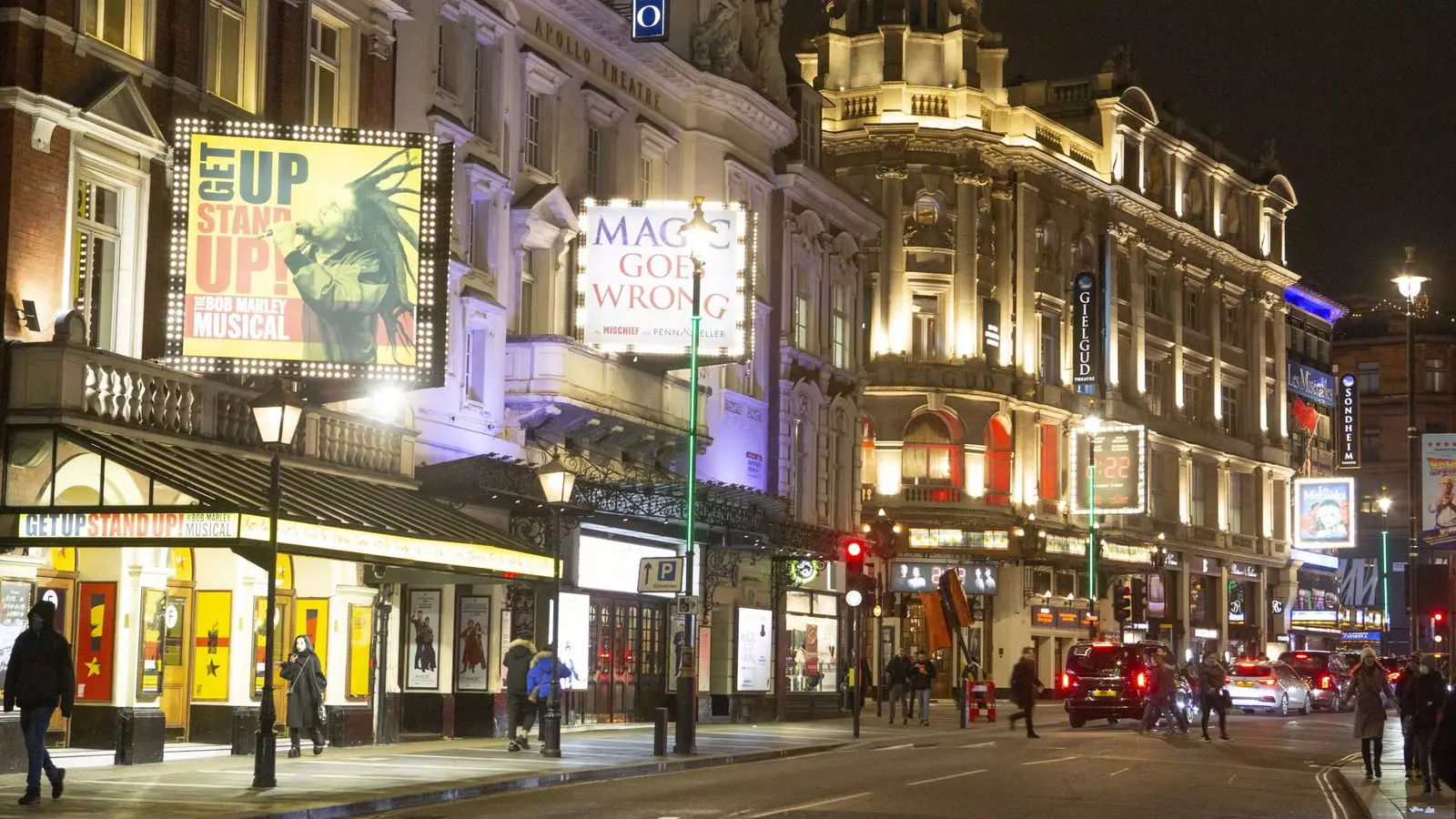Front-of-house workers at leading West End theatres have painted a troubling picture of the current state of audience behavior. According to those who agreed to speak anonymously with Sky News, assaults and abuse have become distressingly common occurrences. From projectile vomiting and discarded condoms to bloody fights that require ambulance intervention, the accounts are deeply unsettling. What is even more concerning is that some workers believe that profit is prioritized over safety by top management at certain venues, exacerbating an already dire situation. The COVID-19 pandemic has further exacerbated the problem, making the job of these theater workers unbearable.
One worker shared a chilling incident, speaking about a friend who was viciously punched in the face by a man towering over her. The assailant had arrived late and refused to accept that he had to wait for a suitable moment to take his seat. This worker himself experienced assault when he attempted to enforce theater etiquette. In his words, “I’d moved myself in front of the doors and he basically slammed me against the wall and then walked in, calling me a f****** w***** for doing my job… security pulled him out and he was made to apologize… but he was allowed to watch the show. I’ve just been assaulted, and I’m shaken, but that’s a common experience in the West End.”
It has become distressingly evident that a significant number of theatergoers have forgotten how to behave appropriately. Workers reveal that they are compelled to ask people to leave the premises at least once a week. While many theatergoers enjoy a magical and respectful experience, there exists a minority that exhibits disruptive and anti-social behavior. This trend appears to be more prevalent during jukebox musicals that cater explicitly to stag and hen parties, advertising an evening of boisterous entertainment. These events attract large crowds, and theater staff face the immense challenge of conducting bag checks, ticket validations, and ensuring patrons are seated promptly. However, the desire for audiences to quickly access the bar often leads to tension and abusive encounters. Bar staff members have reported being subjected to verbal abuse and witnessing various unpleasant incidents.
To illustrate the sheer lack of concern exhibited by some theater attendees, one employee recounted an incident where an individual was confronted in the foyer regarding complaints of disruptive behavior and vaping. When confronted with these allegations, the person dismissively responded, “So what?”
Renowned musical composer Stephen Schwartz, with over five decades of experience in the theater industry, highlighted another growing issue: mobile phone usage during performances. Schwartz expressed his exasperation with audience members who continuously engage with their phones, disrupting the show for others. He appealed to these individuals, urging them to step out into the lobby if they need to use their phones rather than disturbing fellow theatergoers. A recent survey conducted by theater union BECTU supports Schwartz’s concerns. Of the 15,000 theater staff who participated, 90% reported regularly witnessing disruptive behavior, with 50% even considering leaving their jobs as a result. Philippa Childs, the Head of BECTU, expressed her astonishment at the stories they uncovered, including instances of violence and threats towards staff members. Childs emphasized the urgent need for theater management to take action and prioritize the safety and well-being of their employees.
While it is understandable that theaters are eager to recover from the financial losses incurred during the COVID-19 lockdowns, Childs stressed the importance of not encouraging audiences to arrive at performances already intoxicated.
The testimonials of these front-of-house workers provide a harrowing insight into the current state of theater audiences. The incidents described highlight the urgent need for theaters to address this escalating epidemic of disruptive behavior. The safety and well-being of theater staff should be paramount, and decisive action must be taken to protect them. Theater management should consider implementing stricter security measures, providing additional training to staff, and raising awareness among audiences about appropriate behavior and respect for others.
Theater should be a space where individuals can escape and immerse themselves in the magic of live performances. It is the responsibility of everyone, from theater staff to audience members, to ensure that this cherished art form can thrive in an environment of safety, respect, and enjoyment.


Leave a Reply